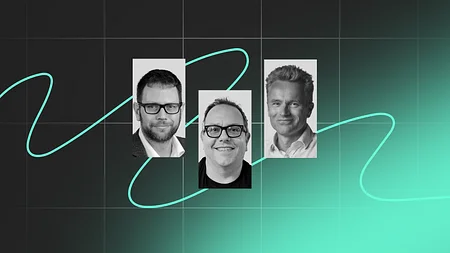6 takeaways from the Facebook Libra Senate and House hearings

Libra’s David Marcus went before the Senate and the House to talk crypto, Facebook and the end of financial stability. This was epic. Here’s what we learned (and what we didn’t).
As soon as Libra was announced you could hear the US Senate rumbling...
As I’ve referenced previously, put yourself in the lawmakers shoes - for a few years you’ve had concerns about the influence Facebook exerts. Then there’s crypto. You’re definitely unsure about that. The Dark Web, drugs, trafficking, ransomware. It’s the political equivalent of your nightmare about spiders and your nightmare about scary clowns combining into a scary clown spider.
You wake up to the news that Facebook is launching a cryptocurrency and within weeks the man heading up the initiative is asked to testify to the Senate Banking Committee. The following day he was grilled by the House of Representatives Financial Services Committee on privacy, consumer protection, and KYC and AML controls.
So David Marcus had quite the week.
A lot happened. Too much for one blog or podcast but here’s some of my personal takeaways:
1. The hearings were good
I found myself pleasantly surprised at how coherent and informed the Senate hearing was. That could be a reflection of the low bar we’ve seen with Mark Zuckerberg where I wondered if some the Committee even knew what the internet was...
Instead, many of the Senators had done their homework, asking insightful questions around the legal foundations of Libra, the development plan as well as the how and the why. The obvious questions arose but they are generic concerns about crypto as a whole, rather than anything Libra specific.
The hearing in Congress proved to be even more tense, with a far more accusatory tone throughout. It was interesting to see several Republicans argue the government should not have a knee jerk reaction of wanting to oppose new ideas from the private sector for people who are currently unbanked.
And Marcus, to his credit, was clear and calm throughout. He was pretty forthcoming when he was on ‘safer’ ground and countering some of the national security points nicely. He did, however, dodge a few of the tough lines of questioning regarding how much Facebook is investing in Libra and Calibra.
Again I think that because this is Facebook, and for the reasons outlined above, these discussions were always likely to start from a position of inherent mistrust rather than an information gathering exercise.
You expect us to believe that you’re going to start collecting financial data and not share it because you promised not to do that?
Democratic Rep. Alma Adams.
2. Clarity around Calibra wallet
While most of the focus has been on Libra as the new cryptocurrency, less attention was paid to the Claibra wallet, which I think is the potentially more interesting play.
The first thing is confirmation of what we all suspected: Facebook will only build its own Calibra cryptocurrency wallet into Messenger and WhatsApp, and will refuse to embed competing wallets. Calibra will be interoperable, allowing users to send money between other wallets, with Marcus stating a commitment to data portability.
Essentially, if you don’t want to use Calibra you can use a competitor. But let’s be real, by embedding Facebook’s wallet into leading messaging apps gives the firm a pretty sizeable head start. Sure a bank, or even a Coinbase, could create a wallet but getting the user numbers is going to be challenging.
3. Data: who, where, how
Can Facebook see it? What will Facebook do with it?
These were obvious but important questions. This is also a great excuse for me to use the word ‘commingle’ because it’s a great word but also because Marcus stated this publicly in this tweet thread that it won’t commingle.
However, Marcus had a harder time in the Senate, when pushed by Chairman Crapo (real name, seriously) on whether Facebook would collect data about transactions made with Calibra that are made on Facebook, such as when users buy products from businesses they discover through Facebook.
Even though Facebook will have no visibility into the funding of a Calibra wallet, it might know what was purchased and for how much if the transaction occurs on their social platforms - so Facebook and Instagram. I’m not convinced that makes anyone feel any better.
4. But is the data secure?
This was a topic where Marcus stumbled again. In his testimony, he restated the security and data credentials but inadvertently made more people question what is going on.
“For the purposes of data and privacy protections, the Swiss Federal Data Protection and Information Commissioner (FDPIC) will be the Libra Association’s privacy regulator.”
Makes total sense and supports what we know.
Except, as CNBC reported, no one from Facebook nor the Libra Association has contacted the Swiss regulator. A Facebook spokesperson then, post hearing, confirmed that the company hasn’t yet met with the FDPIC.
Libra really, really needs to get a lot better at this aspect or its risks giving its many, many detractors, including those in government, a lot more ammunition. And a lot more Senate and House Committee invites.
This is not Silicon Valley; you cannot solve problems as you go.
Democrat Rep. Nydia M. Velázquez.
Yikes.
5. Does it challenge sovereignty?
“I’m concerned a 2020 launch date represents deep insensitivities about how Libra could impact U.S. financial security, the global financial system, the privacy of people across the globe, criminal activity and international human rights.” Republican Rep. Ann Wagner.
Again, obvious line of questioning that Marcus countered stating that Libra wanted to collaborate with regulators, that it has released the website and whitepaper early to gather feedback.
He noted the Libra Association chose Switzerland “not to evade any responsibilities of oversight” but because it’s where international financial groups like the Bank for International Settlements, which it hopes to collaborate with.
Marcus was also clear: Libra will comply will all US FinCEN regulations and no, it won’t launch until regulators are satisfied.
“I don’t think you should launch Libra at all. At the very least you should agree to do this small pilot program.” Democratic Rep. Carolyn Maloney.
6. The US should be leading crypto developments
Senator Tom Cotton (R-Ark.), questioned how the new currency would impact the ability of the US to impose effective sanctions. Marcus’ response was strong here, pushing back that national security efforts would fall behind without innovation in financial services.
“I’m glad you brought this up because I believe that if we don’t lead in the space, others will. And the same way that we will end up having two internets and two different infrastructures, we will have two different financial systems and two different financial networks. And one will be out of reach of sanctions that are so effective in enforcing our foreign policy and preserving our national security.”
He was repeatedly asked why Facebook is pushing Libra, and again countered that blockchain has the potential to be game-changing and the US should lead the charge.
“I actually believe that if we stay put, we are going to be in a situation in 10, 15 years where we’re really going to have half of the world that is going to operate on, by the way a blockchain-based technology, that will be out of reach from our national security apparatus.”
Bold.
I’m glad you brought this up because I believe that if we don’t lead in the space, others will
David Marcus, Libra
The Libra story is going to run and run and run.
We’ve been unpacking a lot of different elements over on Blockchain Insider Episodes 101, 102 and again 105 after US President Donald Trump had some choice words about crypto in general and Libra specifically. Myself and David also examined what Libra might mean for banks in a recent episode of Fintech Insider OnAir.



